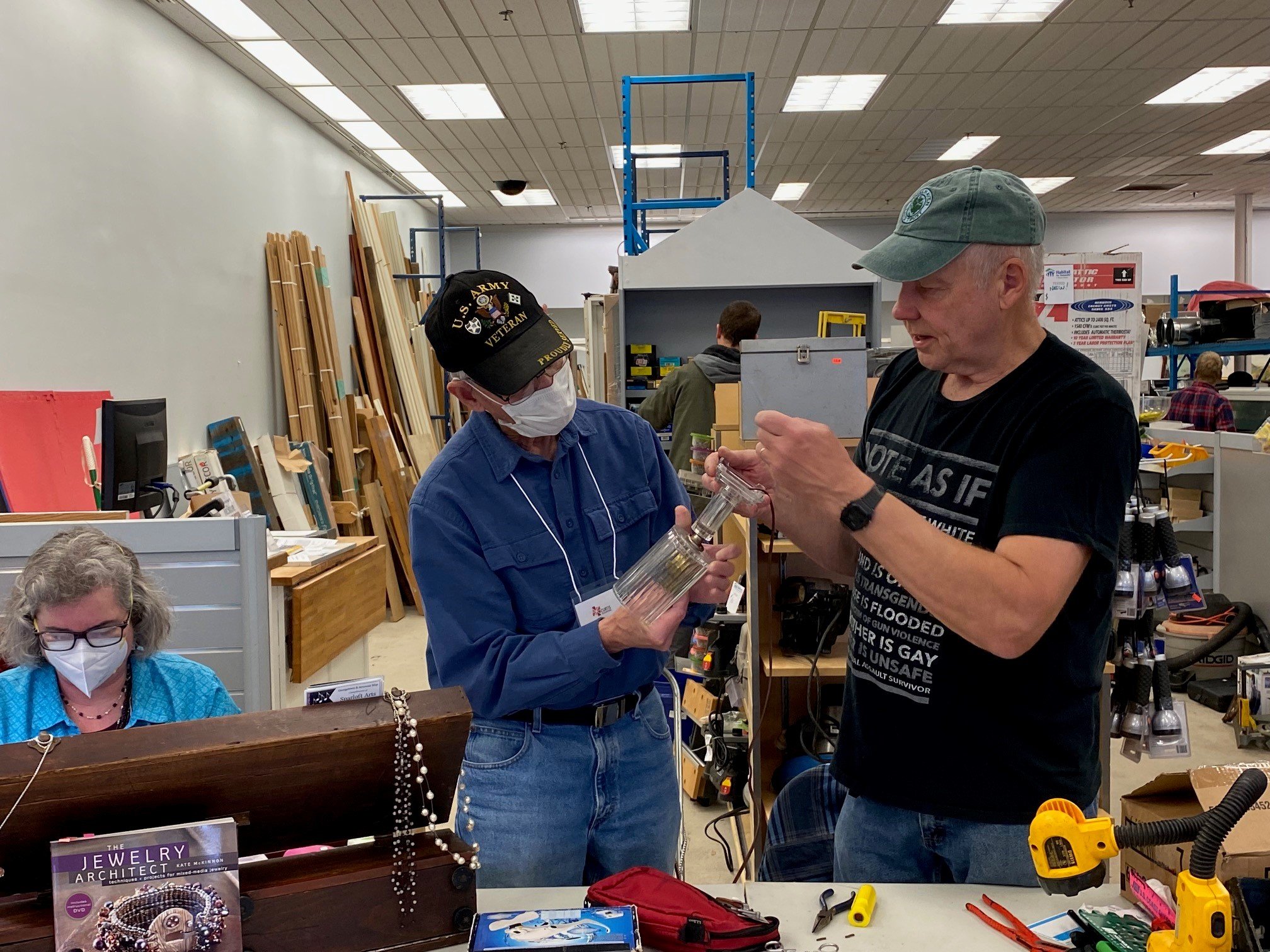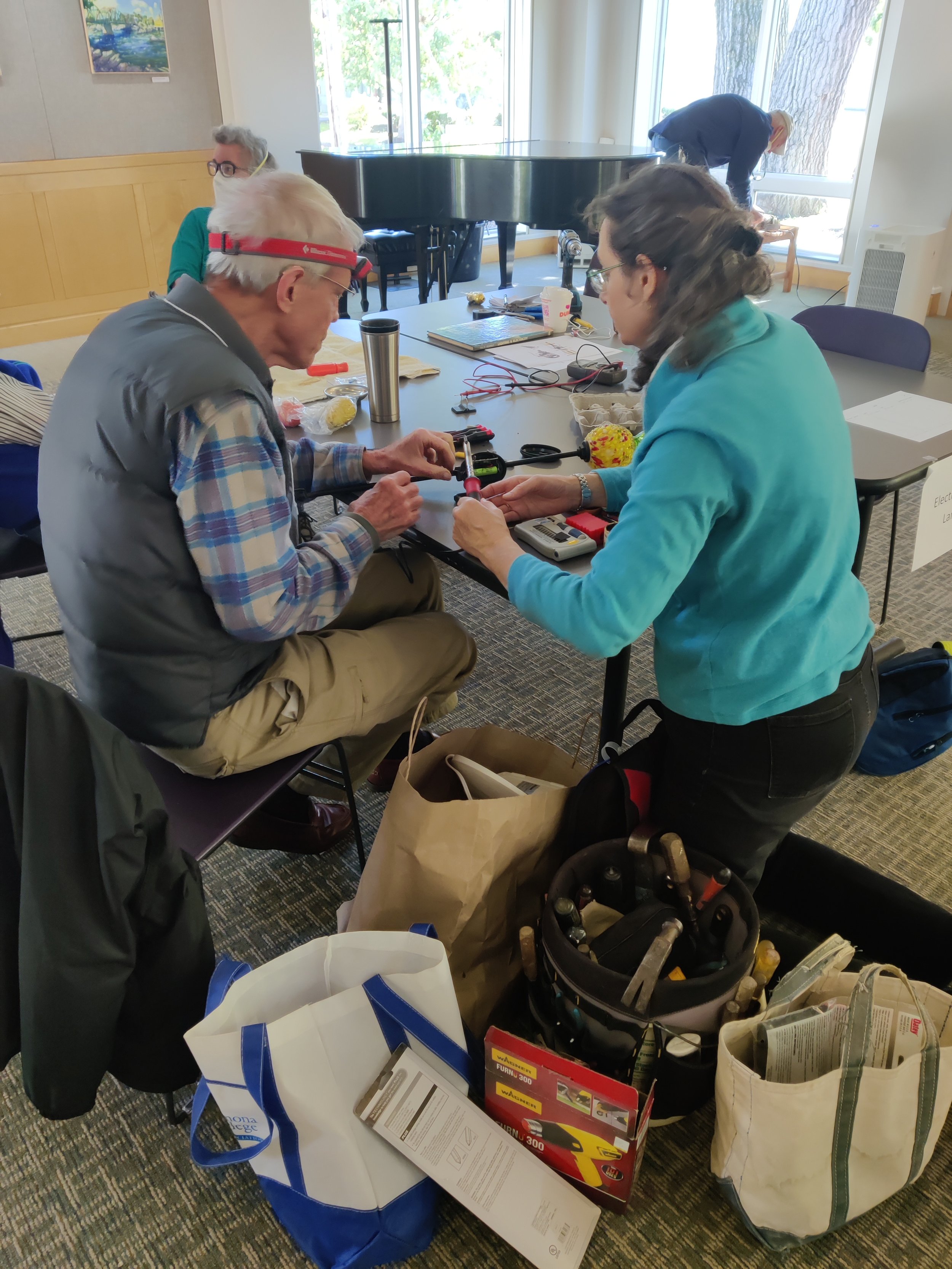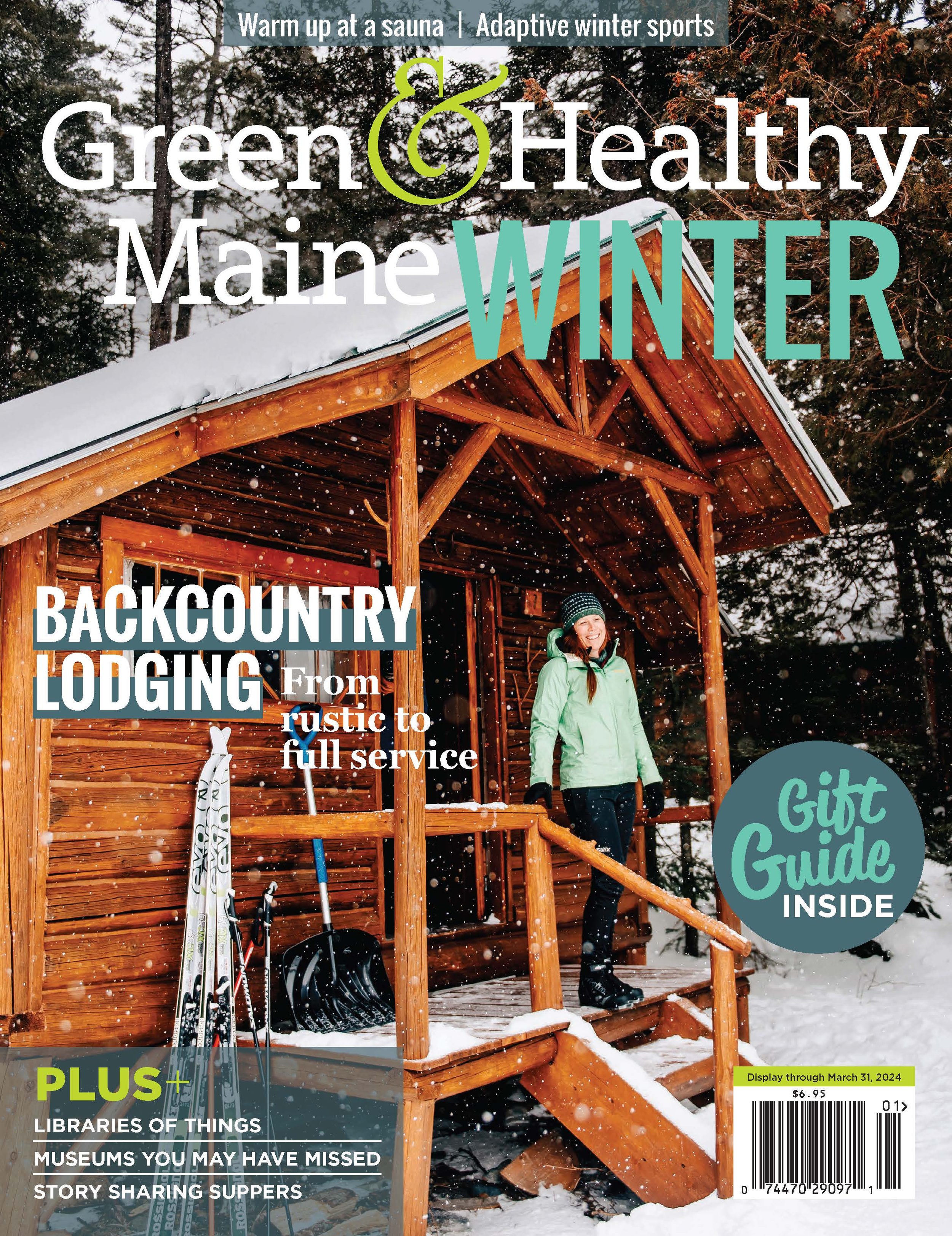Don’t toss it, fix it at a repair café
Fixing a lamp at a repair café held at Habitat for Humanity for Humanity 7 Rivers ReStore in Topsham. The store has since relocated to Bath. COURTESY PHOTO.
By June Donenfeld
WHEN PHOEBE, our incorrigible puppy, nibbles a fresh hole in her beloved “Maine”-monogrammed plush moose, I take out my sewing kit, and it’s ready to go back into rotation in about five minutes.
This repair reflex is nothing new, of course; previous generations would no sooner have tossed out something mendable than lit a match to a wad of cash. But with a growing awareness of the price we pay for our current throwaway culture, more and more people understand that attitudes—and actions—need to change.
An encouraging sign of change can be seen in Maine’s repair cafés: free events where people gather to repair everyday objects with the help of skilled local volunteers. Think coffee makers, computers, bicycles, clothing—and more. They are typically held at places like churches, libraries or college campuses and do not compete with local repair specialists; visitors are often advised to seek a professional if their item cannot be easily fixed.
The first Repair Café was founded in 2009 in Amsterdam by Martine Postma, a Dutch environmentalist and former journalist, to combat throwaway culture. The events prompted such an enthusiastic response that Postma went on to create the Repair Café International Foundation to give other communities around the world the tools to set up their own projects.
Repair cafés do more than extend the lives of household items: they also create a sense of community and encourage new connections across the generations and different walks of life. These events are not just for adults, either. They can be adapted for schools, giving students skills, confidence and awareness.
A skilled, well-equipped volunteer helps to fix a broken lamp at a repair café co-organized by the Patten Free Library in Bath and the Curtis Memorial Library in Brunswick. COURTESY PHOTO
Repair cafés (and beyond) in Maine
To find a repair café event in your area, start with your local library; they may host them or know of one nearby. In addition to libraries, there are several other organizations hosting repair cafés and teaching repair skills in Maine:
Center for an Ecology Based Economy in Norway hosts a repair café on the first Friday of each month in Norway, Maine.
Belfast Community Works hosts a regular repair café on the third Saturday of every month at the Waldo County YMCA.
Members of Bangor Makerspace have 24/7 access to the collaborative workspace and onsite storage. Resources include a woodshop, various hand tools, 3D printers, laser cutters, electronics equipment, sewing machines and more.
Maine’s Center for Sustainability hosted a repair café earlier this year at Rising Tide Brewery in Portland. Check their website for upcoming events.
Interested in keeping your outdoor equipment in great shape? Check out the nonprofit Maine GearShare. While not a repair café, it does offer outdoor gear repair, maintenance and basic repair instruction. All fees support their programs, which are focused on equitable access to the outdoors.
The University of Maine Cooperative Extension offers free annual workshops on garden tool maintenance at The University of Maine Gardens at Tidewater Farm in Falmouth.
Learn how to fix your bicycle at Portland Gear Hub’s Bike School, less than a five minute walk from the Gear Hub’s nonprofit bike shop. The educational workspace offers classes and drop-in open bench time every Tuesday and Friday. Volunteer mechanics are on hand to assist and answer questions as needed.
Finally, the original Repair Café website also provides listings by location, but their information may not be fully up to date.
A hole in your sweater can be easily mended at a free repair café. PHOTO: RAINE RAYNOR.
Start your own repair café
Interested in setting up a Repair Café in your own community? Here are some rich resources to get you started:
Reduce Waste with Repair Clinics: A Community Guide to Organizing a Repair Clinic (Maine Department of Environmental Protection)
Repair Café Toolkit (Central Vermont Solid Waste Management District)
Repair Café Foundation Starter Kit (Repair Café)
Repair Café in the Classroom (Repair Café)






On the cover: Judi steps out of a cabin in the 100-Mile Wilderness to fresh falling snow.